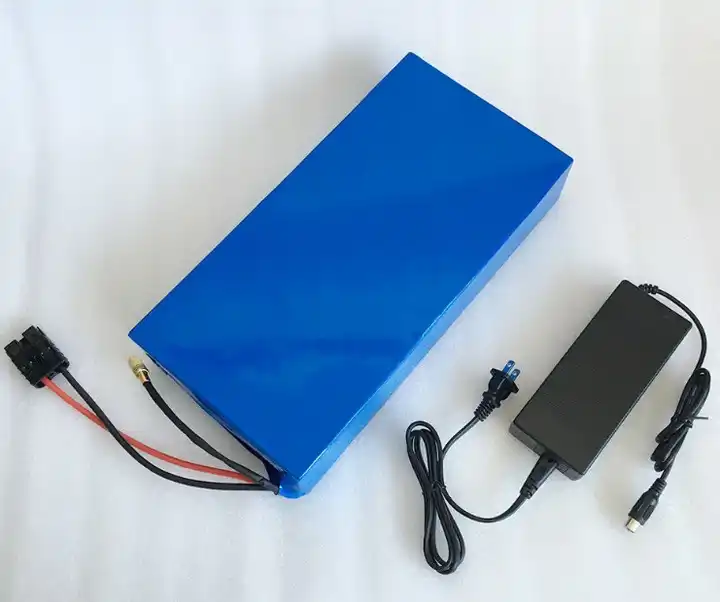In the vast expanse of agriculture, where the livelihoods of countless farmers intertwine with the food on our tables, the packaging stands as a sentinel, guarding the essence of this essential industry. Amidst the array of packaging solutions, one star has risen to prominence – the BOPP bag, an acronym for Biaxially Oriented Polypropylene bag. These versatile bags, often shining under the sun, have carved a niche, offering various benefits and applications within the agricultural landscape. In this comprehensive exploration, we’ll deeply dive into the world of BOPP bags in agriculture, shedding light on their diverse applications, myriad benefits, and the increasingly important aspect of sustainability within this domain.
Types of BOPP Bags Used in Agriculture
To comprehend the significance of BOPP bags in agriculture, we must first understand the diversity in the types of bags available. Each class is tailor-made to cater to specific agricultural needs, offering various solutions.
Laminated BOPP Bags: These bags are meticulously engineered to shield crops from external threats such as moisture, pests, and the relentless UV rays of the sun. Their robust construction makes them ideal for packaging grains, pulses, seeds, and various agricultural products.
Micro-Perforated BOPP Bags: In contrast, micro-perforated BOPP bags offer a unique feature – tiny perforations that facilitate controlled air circulation. While preserving the contents, these bags are especially suited for packaging delicate fruits and vegetables, extending their shelf life and maintaining freshness.
Applications in Crop Protection
Crop protection is one of the primary roles of BOPP bags in agriculture. These bags act as formidable shields, warding off various threats that can compromise crop quality and yield.
Pest Protection: BOPP bags create an impenetrable barrier, effectively keeping pests at bay. This proactive approach reduces the dependence on chemical pesticides, aligning with eco-conscious agricultural practices.
Weather Resilience: The unpredictability of weather patterns can pose significant challenges to agriculture. BOPP bags become reliable protectors, shielding against adverse weather conditions such as rain and humidity. Whether crops are in transit or storage, BOPP bags play a pivotal role in safeguarding their integrity.
Seed Packaging
Seeds are the lifeblood of agriculture, serving as the foundational elements for every crop. Ensuring the quality and viability of seeds is paramount, and this is where BOPP bags come into play.
Preservation: BOPP bags are instrumental in maintaining seed quality. By creating a protective cocoon, these bags keep moisture and contaminants at bay, ensuring that seeds remain viable for planting season after season.
Customization: Beyond preservation, BOPP bags provide the canvas for branding and labeling. This customization is crucial for seed companies looking to establish their identity and convey essential information to customers.
Fertilizer Packaging
Fertilizers are the lifeline of crops, and packaging these vital nutrients demands careful consideration. BOPP bags are the choice for fertilizer packaging owing to their unique properties.
Durability: These bags exhibit remarkable strength and resilience, capable of withstanding fertilizers’ weight and chemical properties without compromising the package’s integrity.
Moisture Resistance: BOPP bags create a formidable barrier against moisture intrusion, which can lead to clumping and deterioration of fertilizer quality.
Benefits of BOPP Bags in Agriculture
Now that we’ve explored the applications of BOPP bags in agriculture let’s unravel the intricate tapestry of benefits that these bags bring to the field:
Durability: BOPP bags are the epitome of resilience, ensuring that your agricultural products remain safeguarded during the rigors of handling and transport. Their robust construction withstands the farming environment’s challenges, from heavy loads to rugged terrains.
Moisture Resistance: These bags excel at keeping moisture at bay, preserving the quality of seeds, grains, and various other agricultural products. This is paramount, as water can lead to spoilage, clumping, and the growth of molds and fungi.
Customization: Beyond their protective qualities, BOPP bags are a canvas for branding and labeling. Whether you’re a seed company looking to establish your identity or an agricultural business seeking to enhance product visibility, these bags offer the ideal platform.
Environmental Impact: In an era where sustainability is a growing global concern, it’s worth noting that many BOPP bags are recyclable, presenting an eco-conscious packaging option for environmentally aware farmers and businesses. This aligns with the broader movement toward sustainable agriculture.
Cost-Effective: The durability and protective properties of BOPP bags often translate into cost savings. By reducing product loss due to damage or spoilage, these bags are a cost-effective choice for agricultural packaging.
Sustainability and Environmental Impact
As the world increasingly recognizes the importance of sustainability, the environmental impact of packaging solutions comes under scrutiny. In this context, it’s essential to highlight that many BOPP bags are recyclable and environmentally friendly. These bags offer a sustainable packaging solution that aligns with the growing emphasis on eco-conscious practices within the agricultural industry.
The recyclability of BOPP bags is a significant step toward reducing agriculture’s environmental footprint. Farmers and agricultural businesses contribute to a circular economy where resources are conserved, and waste is minimized by choosing recyclable bags.
Innovations and Trends
Packaging is dynamic, characterized by continuous innovation and adaptation to emerging trends. BOPP bags are no exception to this rule. Recent advancements in materials and printing technologies have made BOPP bags even more versatile and eco-friendly.
Biodegradable BOPP Bags: One of the noteworthy trends in BOPP bag technology is the development of biodegradable options. These bags break down naturally over time, reducing their environmental impact.
Advanced Printing Techniques: Innovations in printing technology allow for more intricate and detailed designs on BOPP bags. This enhances branding and product presentation, making these bags more appealing to consumers.
Sustainable Packaging Initiatives: Agricultural businesses increasingly adopt sustainable packaging practices, including eco-friendly BOPP bags. This aligns with consumer preferences for environmentally responsible products.
Conclusion
In the expansive canvas of agriculture, BOPP bags have emerged as versatile protectors and preservers. Their applications in crop protection, seed packaging, and fertilizer containment are testaments to their value. Moreover, their numerous benefits, including durability, moisture resistance, and customization options, make them a preferred choice for many in the agricultural industry.
As sustainability gains prominence, BOPP bags offer a responsible packaging solution that aligns with the growing environmental consciousness. Agricultural businesses can reduce their ecological footprint and contribute to a more sustainable future by choosing recyclable and biodegradable options.
As we gaze toward the future, we can anticipate further innovations and trends that will continue to enhance the role of BOPP bags in agriculture. Whether through advanced printing techniques, sustainable packaging initiatives, or the development of eco-friendly options, these are poised to play a pivotal role in the ever-evolving world of agriculture.
In conclusion, BOPP bags are more than just packaging; they are essential partners in agriculture, safeguarding crops, preserving seeds, and ensuring the efficient delivery of vital nutrients. As the agricultural landscape evolves, BOPP bags will continue to grow, providing innovative solutions that meet the industry’s ever-changing needs.




